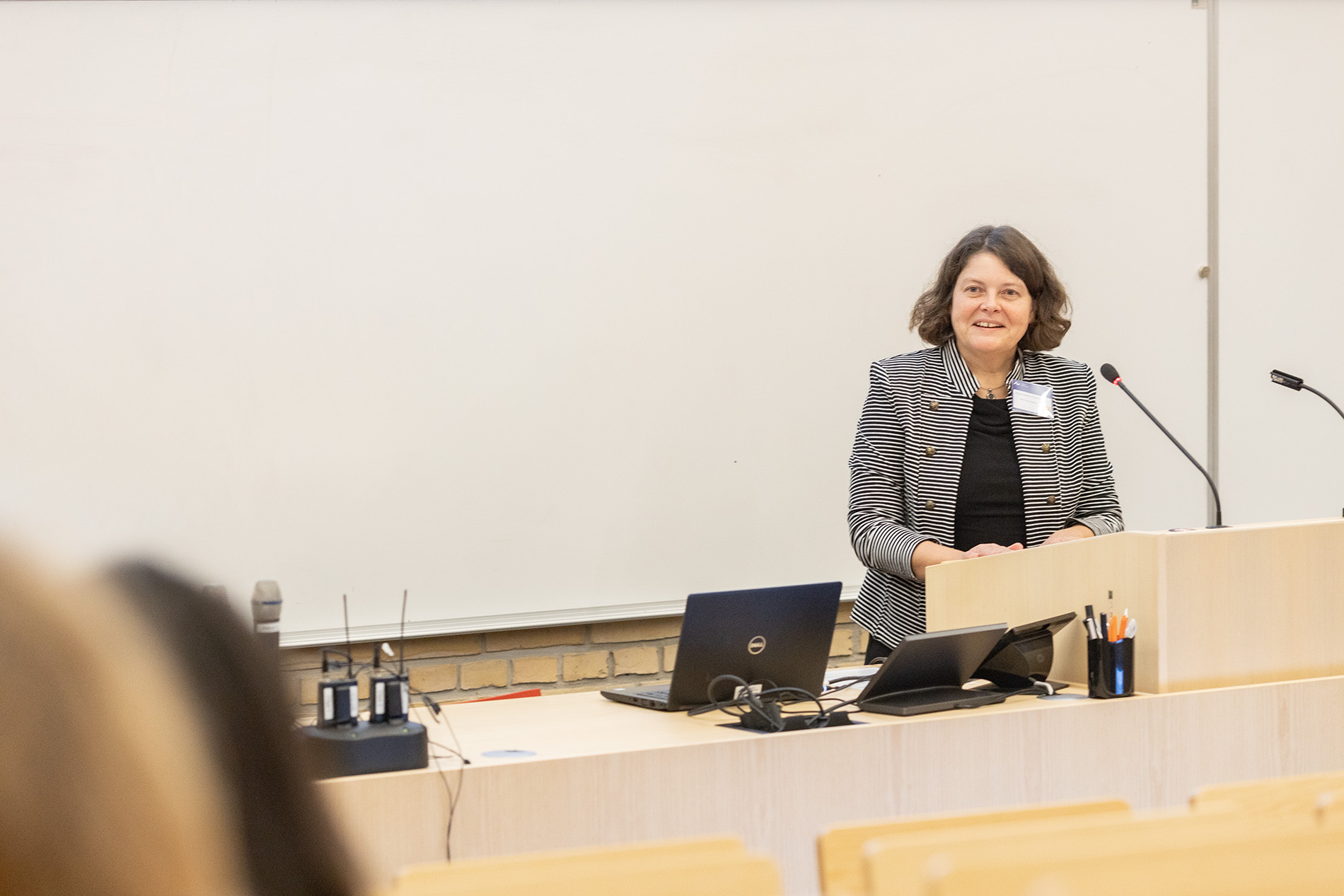Symposium gathered green chemistry and engineering in the work for developing sustainable materials
Aarhus University and Merck Life Science held ‘The 2nd Green Chemistry and Engineering symposium’ in October. The symposium gathered interdisciplinary research across universities within the topics of green chemistry and green technologies.


“Interdisciplinary is the key word, and that’s why we have chosen to bring people from different perspectives together. Chemistry and engineering, also called chemical engineering, go hand in hand. And it’s important to spread the word that chemists can contribute to- and care about green and sustainable materials and that there are companies that do too,” Professor Anja Mudring answers to the question about the motivation for the symposium.
It’s the second time that Aarhus University and Merck KGaA, a Life Science and pharmaceutical company, are organizing the symposium with invited speakers from across the world - from the US to Asia and Europe within topics about green chemistry and green technologies, like light sources lubricants, solar cells, and bioelectronics.
About three years ago, Professor of Chemistry Anja Mudring moved to Denmark to start in her position as leader for the research group Intelligent Advanced Materials at Aarhus University. It was also around this time the first thoughts about the symposium started between Anja Mudring and Mikael Friberg from Merck KGaA.
Merck KGaA is a German life science and pharmaceutical company that was founded in 1668 in Darmstadt. The company is a supplier of research materials and has a yearlong collaboration with academia and industry in Denmark. Merck KGaA has a sustainability strategy that’s followed up with a yearly report.
“Merck is driven by sustainability through science because by collaborating with the scientific community, we will, and we must make a change,” says Mikael Friberg, who’s chemist working with technical sales to industry and academia.
Green and circular chemistry
About 25 years ago “green chemistry” became a designation and a movement by one of its founding fathers, Professor of Chemistry John Warner, who gave a presentation at the symposium.
Green chemistry is about developing and using chemical materials in a more circular way, where some of the aspects in the product making are using less energy and less toxic chemicals and prevent waste.
“In the very beginning, chemical engineering stood for developing medicine and vaccines – high value and needed materials. But then we had several disasters with persistent chemicals in our food chain and environment, so we realized that we need to be more careful with the chemicals that we are creating, and that’s why, we care about green chemistry,” says Anja Mudring, and continues:
“In the lab, we are aware that we produce materials environmentally friendly. When we apply for fundings, the applications are dedicated to sustainable development goals and that we, as scientists, care about the materials’ afterlife in our projects.”
“There’s a demand to go sustainable”
Since the first symposium was held in 2021, the engagement and interest in green chemical engineering has grown. Both in the industry and among the chemistry students.
“During the last three-four years, the mindset has changed a lot, and sustainability has gained foothold in the industry among researchers and students - there is a demand to go sustainable. And there is a growing number of global pharma companies that make great sustainable goals,” says Mikael Friberg.
Anja Mudring adds: “The students want to be educated in green chemistry, and companies are looking for educated people. But there is also a growing pressure from the consumers e.g., on beauty companies that they can certify and produce their cosmetics in a green way. That wouldn’t have happened 10 years ago.”
Biodegradable electronic materials
Shweta Agarwala, Associate Professor at Department of Electrical and Computer Engineering and head of Printed Electronics Technology Group at Aarhus University, gave a presentation about bioelectronics. Her research is an example on interdisciplinarity in the work of developing materials that are sustainable within a big industry as electronics.
“Electronic waste, also called e-waste, is world's fastest growing waste stream, and we need to tackle it before the problem goes out of hand. Apart from recycling and reusing, we need to start designing and developing new electronic materials that are green and eco- friendly, so the final systems are sustainable,” says Shweta Agarwala, and she explains her research:
“Bioelectronics is the marriage between biology and electronics, wherein electronics can either help understand biological mechanisms or manipulate and treat biological systems and functions. We are developing polymer based biodegradable materials that are electrically functional, and our results have shown that it’s possible to replace traditional electronic substrates with biodegradable materials to build circuits on. We have also synthesized biodegradable and biocompatible piezoelectric materials to replace inorganic counterparts. Regarding chemical substrates, we seek new ways to synthesize materials with non-toxic reagents,” explains Shweta Agarwala and concludes:
“The broader vision of my research is to develop a whole library of sustainable materials for green electronic systems.”
Contact
Department of Biological and Chemical Engineering
